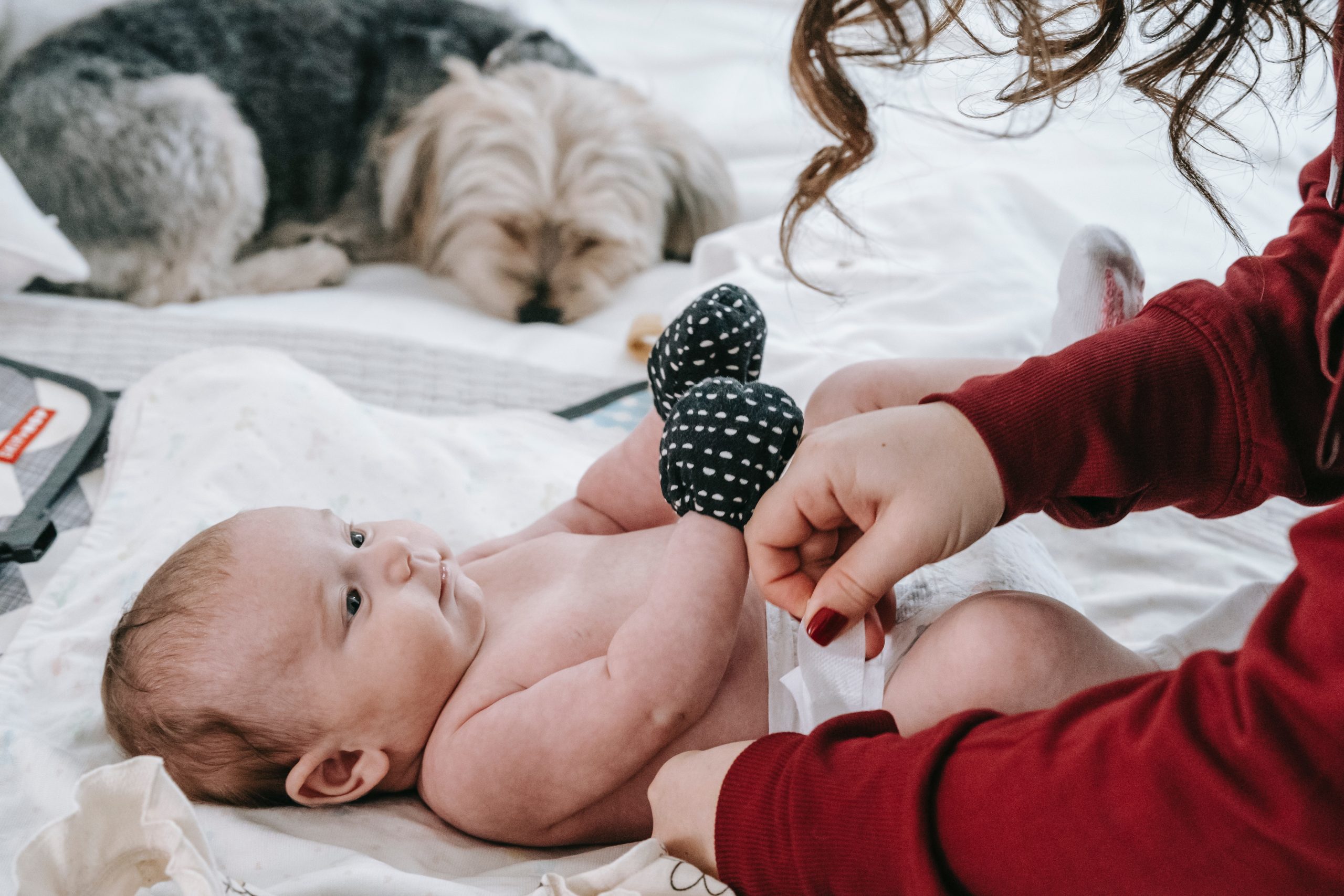Parents want to give the best to their children, even if it means stretching their budgets to buy top-quality products. Diapers keep your little one comfortable and dry and facilitate no-mess convenience at home and during outings. You will surely want to keep your diaper bag stocked up with the essentials like diapers, wipes, wipes, petroleum jelly, and skincare cream.
But can you really trust brands and labels to ensure safety for your precious bundle of joy? Surprisingly, 77% of children’s products reviewed in a survey had never been assessed for safety. Even worse, the average infant is exposed to 27 untested chemicals in everyday baby care products alone. You can imagine the danger lurking in your diaper bag with the sheer number of products it contains.
Awareness can help you choose wisely and safeguard your little one from harmful chemicals. Here are the potential culprits you should watch out for.
Diapers
Diapers spell convenience for moms and comfort for babies as they can prevent sleepless nights and leaks in public places. But did you know that they may be loaded with toxins? Surveys show that many diaper brands use harmful chemicals, volatile organic compounds, formaldehyde, and phthalates. Some of these harmful chemicals even exceed levels deemed a risk to infant health.
Prolonged exposure to high concentrations of VOCs can damage the kidneys, liver, and nervous system. VOCs are not just a concern for indoor air quality because they can lurk inside your baby’s diaper bag. Pesticides and formaldehyde increase the risk of cancer. Phthalates can cause hormonal disruptions, interfering with proper growth and development.
Talcum Powder
Talcum powder has always been an integral component of diaper bags. It keeps your baby dry and fresh between diaper changes. Conversely, all isn’t so great about talc because research links it to ovarian cancer and mesothelioma. The recent talcum powder lawsuit update validates the risk because the American legal system acknowledges it and ensures that victims get the rightful compensation.
According to TorHoerman Law, anyone who can link these health conditions with long-term use of talcum powder. The average settlement for these cases ranges between $100,000 and $1 million, which shows the gravity of the risk. Parents can swap talc-based products with safe alternatives containing cornstarch, arrowroot, or rice powder.
Baby Wipes
Baby wipes help you clean the baby’s skin, and protect it from allergies and infections. They are far more convenient than the old-fashioned washing method. While these products surely make life easy for parents, they may not be great for your little one’s health.
Not all products are the same, so the safety and efficacy of baby wipes depend on factors such as manufacturing processes, ingredients, and quality testing. Watch out for ingredients such as Propylene Glycol (PEG and PPG), parabens, alcohol, and isopropyl myristate because they can do more harm than good. Always choose a brand that prioritizes natural and safe ingredients.
Petroleum Jelly
Nappy rash is a common concern for parents because most infants encounter it at some point during the diaper years. Slathering petroleum balm on chapped skin offers relief from pain and speeds up the healing process. But you may think twice about using petrochemicals on the fragile skin of your little one.
While petroleum jelly is safe for infants, using it leads to the theoretical risk of exposure to toxins in petroleum. Polycyclic aromatic hydrocarbons (PAH) are the most harmful ones, as more than 100 forms of PAHs are considered carcinogenic for humans. Petroleum jelly manufacturers do not have to follow the regulations regarding refining their products, so you should use them sparingly.
Fragrance
While a baby’s diaper bag does not contain perfumes and deodorants, fragrant diapers, creams, lotions, and wipes can be equally harmful. Fragrance on a product label translates into undisclosed chemicals, which could be hazardous for your little one.
You should ditch any product that mentions it on the labels because it is risky. Beware even if the label says unscented, you can still sniff the fragrance. Opt for fragrance-free products and stick with brands that derive scent from natural sources like essential oils.
Wrapping Up
Baby skin is thin and delicate, making it more prone to absorbing chemicals into the body. Every chemical you expose your little one to may enter their bloodstream through the skin. You need to be cautious about your diaper bag because all products inside it come in direct contact with your baby’s skin.
Look for the hidden culprits and substitute them with safe and natural alternatives. That’s all you need to do to invest in a toxin-proof diaper bag.
